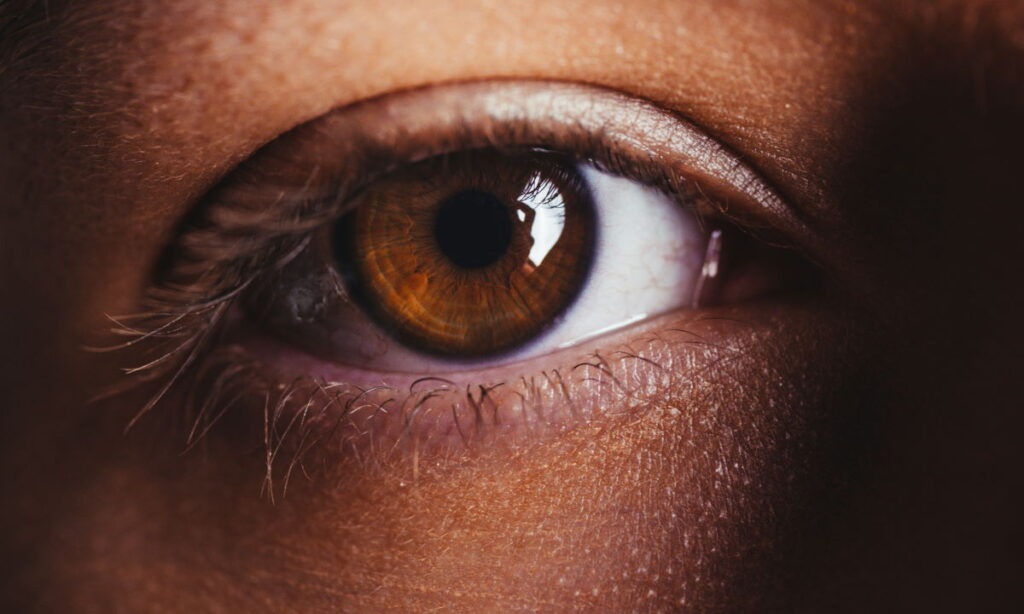You may recall childhood memories of looking down at a plate with only carrots remaining, while being told how they will help you see. Was there any truth to that claim, or was it simply an attempt to get us to eat a few vegetables?
It turns out there are foods that can have a positive impact on our eye health and vision, thanks to vital nutrients and vitamins. In this article, we’re going to share some of those natural foods that can actually improve eyesight, along with practical methods to preserve your eye health.
However, no food will fix your vision or reverse eye conditions. If you’re having vision troubles, take a trip to your local optometrist.
Carrots

It’s true – carrots really do have natural eye health boosting properties. They certainly won’t cure blindness or automatically give you 20/20 vision, but carrots contain beta-carotene. Beta-carotene is converted by the body into vitamin A, which can help prevent cataracts and macular degeneration. Carrots are also rich in lutein, an antioxidant that is great for the macula and retina.
Leafy Greens

The second vegetable on this list is leafy greens – think spinach, kale, cabbage, and collard greens. Leafy greens are a much-touted superfood because of their extreme density of vitamins and nutrients. All leafy greens are absolutely loaded with good stuff like vitamin C, vitamin E, zeaxanthin, and lutein, which our bodies (and eyes) will use as antioxidants.
Eggs

Eggs are one of the most versatile foods in our modern diets, along with being the cornerstone of a complete and healthy breakfast. An excellent source of protein, they’re also great for our eyes. Eggs contain lutein and vitamin A, which are known to slow macular degeneration and diabetic retinopathy, plus zeaxanthin, which has the ability to shield eye tissues from sunlight damage.
Beans & Legumes

Beans and legumes are generally underused in modern Western diets, which is surprising considering their superfood status and low price tag. Beans legumes are high in protein and fiber, plus lentils, chickpeas, and kidney beans in particular are high in zinc, making them a great alternative to meat. These foods’ powerful combination of antioxidants, vitamins, minerals, and plant compounds have the ability to combat retinitis pigmentosa and macular degeneration.
Fish

Fish is a unique food source that all have one thing in common – omega-3 fatty acids. DHA and EPA are the two types found in fatty fish, which are incredible beneficial to our eyes. These fatty acids help protect our retinas, defend against glaucoma and macular degeneration, and even help with dry eyes. Pretty much all fatty fish contain these fatty acids, so take your pick between favourites like salmon, trout, mackerel, tuna, sardines, or something else!
Seeds

Seeds are the perfect alternative for people not open to eating fish, as they also contain high levels of omega-3 fatty acids. Seeds make perfect sense when you consider birds rely on seeds for their diet, and blow humans out of the water when it comes to eyesight. Pretty much all seeds are extremely healthy so you can take your pick, but consider sunflower seeds, which are loaded with eye-friendly vitamin E.
Sweet Potatoes

Sweet potatoes, not to be confused with yams, have reddish skin, softer flesh, and sweeter flavour. They make for an excellent side dish choice, as they’re packed with nutrients that benefit not only our eyes but our overall health. Sweet potatoes have beta-carotene, which is famously good for eye health, plus vitamin C and E.
Beef

Beef is one of the most nutrient-dense foods on the entire planet, and it gets even better when you opt for organic and pasture-raised beef that is free of hormones. Eaten in moderation, lean beef is one of the best things you can eat to bolster your eye health thanks to the high zinc content – a key defender against macular degeneration.
Citrus Fruit

Citrus fruits like oranges, grapefruits, lemons, and limes are famous for their incredible vitamin C levels. Vitamin C is a key component in creating connective tissues, which benefits the cornea of the eye along with the blood vessels. Be sure to mix in some citrus with your breakfast for some early morning eye health.
Aside from these vitamin and nutrient-dense foods which have the power to boost our eye health and prevent serious eye conditions, there are number of things we can do to protect our eyes, including:
- Protect from the sun. Direct sunlight can wreak havoc on our eyes, and spur serious issues like cataracts, macular degeneration, blurred vision, and astigmatism.
- Mind your screen time. Staring at a screen for extended periods of time can contribute to computer vision syndrome. When working, always make sure to adjust your eyes with long distances.
- Keep your home well lit. It’s not good for our eyes to be strained to see all the time, so be sure to keep your home comfortably lit – especially when working or reading.
- Stop smoking. Along with being bad for every corner of your body, smoking is also a great way to develop cataracts and macular degeneration.
- Visit your local optometrist once every two years. The best way to prevent serious eye issues is to frequently see your eye doctor for an eye exam.
Contact Inner Harbour Optometry today to book an appointment at one of our two downtown Victoria locations.
